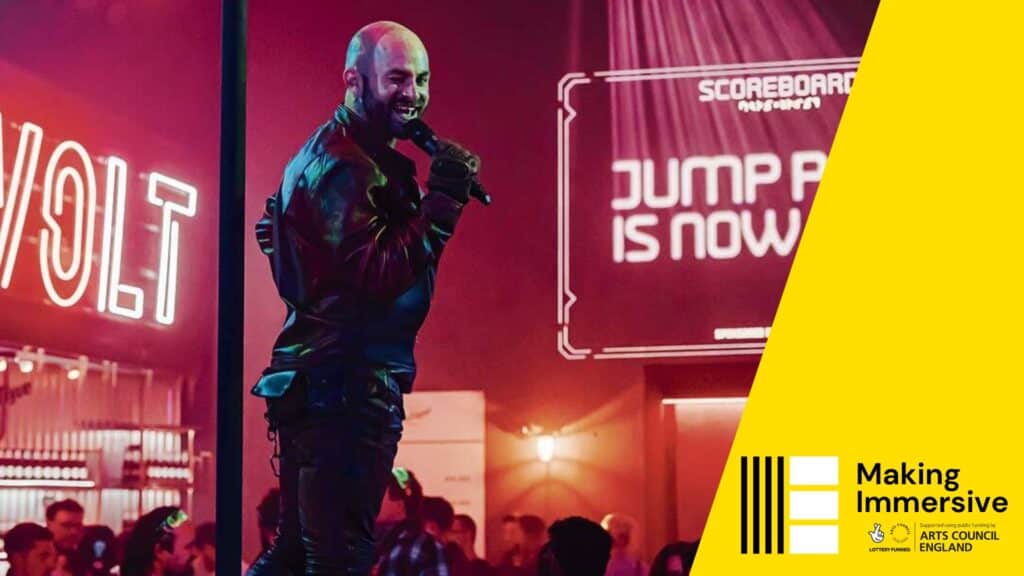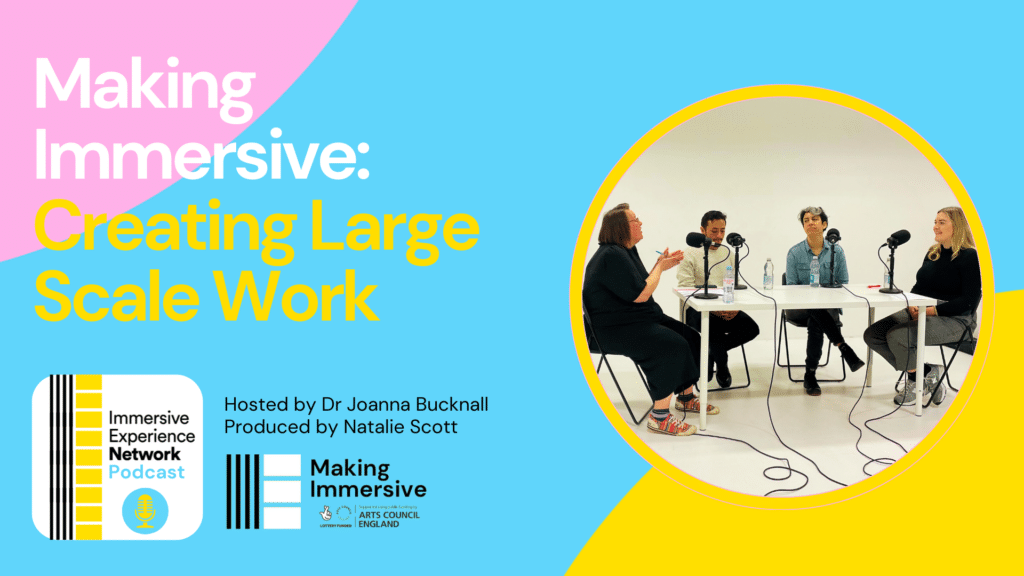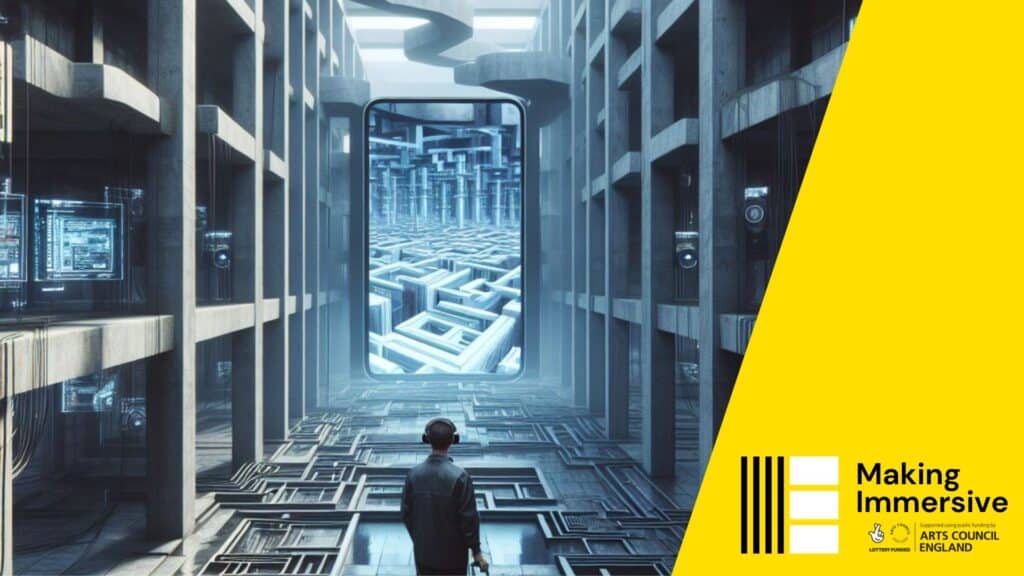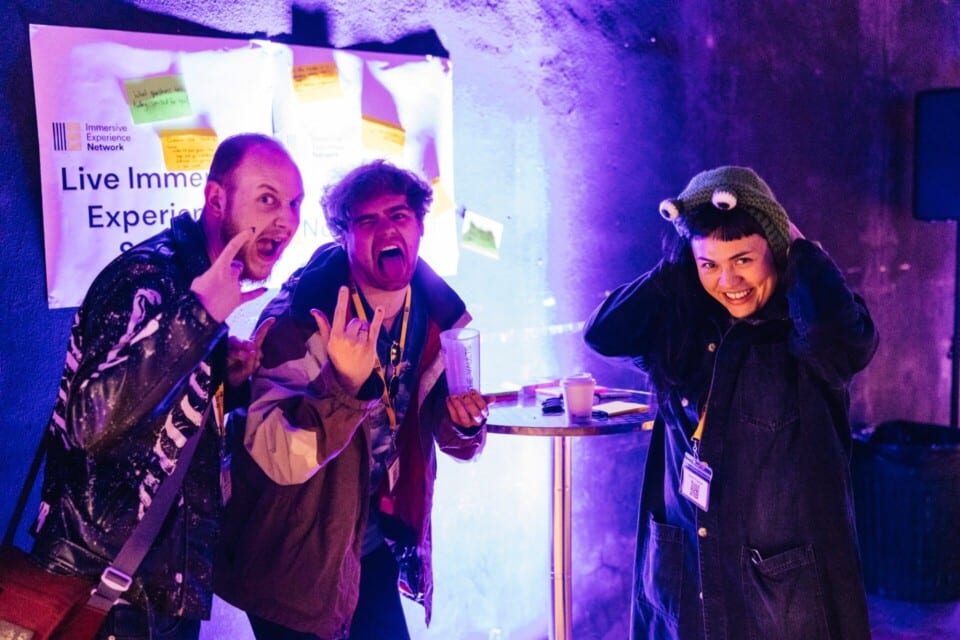Putting on a show in a licensed venue is pretty straightforward with no legal stuff to worry about because the venue has sorted it all out for you. They should have all the relevant licences and permissions to put on events, and already be designed in such a way that both performers and audiences can be safely evacuated in case of an emergency, and all the other important H&S considerations will have been taken care of.
Working on a site that is not usually used for cultural projects, however can be a very different story; by its very nature you are putting a show on in a venue that wasn’t designed for it. Whether that’s an office space that you are repurposing for an immersive experience for an audience of 20, or an abandoned warehouse that you are turning into a world for thousands, here is our 101 guide of things to be aware of.
Licensing
There are a number of legal implications that you need to consider, and it’s important to understand that they are separate and distinct from one another as they get dealt with by different parts of the local authorities.
This is the permission the local council gives you to put on a ‘licensable’ event. Broadly speaking under the Licensing Act of 2003, licensable activities are:
- Food & Beverage
- Any selling of alcohol requires a licence, including if it’s part of the ticket price
- Provision of late-night refreshments (hot food or drink, consumed on or off the premises between 23:00 and 05:00)
- Entertainment
- Performance of a play or other dramatic performance
- Showing a film (with some exceptions for films demonstrating products or at a museum or art gallery)
- Indoor sporting events
- Boxing or wrestling entertainment
- Performance of live music (including karaoke, a band or choir)
- Any playing of recorded music
- Dance performances
There are some other exceptions, but most immersive and site specific shows will fall under one of these categories.
Depending on the size of your show and length of your show run you have various options available if you’re not planning on working with a licensed venue.
1. Apply for a Temporary Events Notice (TENS)
A temporary events notice is available if:
- The show is going to have under 500 people at all times (including the staff and cast)
- The show run is going to last no more than 7 consecutive days.
- The venue you are using will only be allowed to apply for 15 TENS in one year, as long as the total length of the events is not more than 21 days.
They are fairly straightforward to apply for but must be completed within 10 clear working days before your event opens. There is a facility for applying for a late TEN, 5 clear working days before the event but this isn’t advisable.
The TENS basically informs the council, police and environmental health that the event is happening and gives them the opportunity to object if they feel that the event could lead to problems in the community, could lead to crime or be a threat to public safety. Any objections should be received within 3 days of submission. There will be a small fee of £21 per TENS application.
For most small scale shows, TENS are a good solution but if you are planning on something with a larger capacity or for a longer run then you are going to need a more comprehensive solution.
2. Apply for a Premise Licence
A premise licence is what any commercial venue, bar or restaurant has to apply for in order to trade. It is a permanent licence that allows the authorities to check that the business has the management systems in place to deal with the licensable activity, to safely manage the public within them, and has measures in place that will mean the local community won’t be unduly affected.
Applications for Premise Licences:
- Will need to be displayed at or on the premises for 28 days from the day it was submitted. These are the yellow notices that you often see displayed near venues as they are being built or refurbished, they alert the local community to the licence application and give them the chance to submit representations either for or against it.
- An application costs between £100 – £1905 depending on the fee band.
- You will need a Designated Premise Supervisor who has a personal licence if you intend to sell alcohol.
- The application has to be reviewed by the local licensing committee who will hear representations from the police and environmental health, as well as representations from the local community when deciding whether to grant the application or not.
- They can take between 2-4 months from the date of submission to the licence being granted, depending on the timetable of the local authority. You can sell tickets for your show during this period but it’s not advisable because if the licence isn’t granted then the show will not be allowed to take place.
- When issued, the licence has to be displayed at the premise where it can be easily seen; fines up to £1000 can be imposed for failing to produce a licence on request.
Planning Permission
Planning Permission is how local authorities control what buildings get built, how they look, and what they are used for. Planning Permission is technically required when the total onsite time of a temporary event is over 28 days (new planning permissions), or if you are using a building for different purposes than it is currently designated for (change of use) for longer than a 28 day period.
It’s important to understand that this is a completely different process to licensing and is managed by a completely different part of the local council. Its purpose is to ensure that the design and build of your event is compliant with building regulations, and that you are minimising any undue impact to the local community. For example, installing a large immersive show in a warehouse could potentially result in noise pollution escaping from the show along with large crowds and increased traffic in the surrounding streets during ingress and egress. This will affect local residents and so you’ll have to show the council what steps you are taking to mitigate any impact your show might have and the benefits you can offer to the local community.
Applications for Planning Permission:
- The content of the application will depend on your specific situation, but they are detailed and may require consultation with external expert consultants for areas such as fire strategy, noise management, environmental impact or traffic assessment.
- The documents all have to be submitted in the correct format, especially CAD plans. Submitting documents that are then rejected due to formatting issues can waste a lot of time.
- All planning documents are published on the councils online portal for the public to review and submit representations on so beware of including anything confidential.
- You are often offered a “pre-application consultation” for a fee. This is not necessary but can be a way of running your plans past the council early and getting an early indication of what they’ll require to approve them.
- You will need to pay a fee based on the square footage of your footprint. This can get expensive for large sites.
- Getting planning permission can be slow, especially if it’s controversial or faces negative community representations. Allow at least 3-4 months depending on the planning committee’s schedule.
- Getting the permission isn’t the end of the process, once you’ve got the green light from the planning committee you should expect visits from building control and potentially even the local fire department once you are nearing completion. They will be checking that everything you’ve built is as you submitted in your planning application and is in-line with building regulations.
Top Tips
Applying for licensing and planning applications for immersive shows at site specific locations can be a really daunting process, so let us share with you our top tips for successfully getting through the arduous Licensing & Planning Permission process.
- Get the right people on your team: having knowledgeable and experienced people who are used to working with creative shows is invaluable. Working with established production companies such as Entourage or Event Safety Plan can save you time and prevent costly mistakes.
- Allow enough time: both premise licences and planning permission are lengthy processes so if you need to obtain them then make sure your timeline includes enough time to get the permissions granted before tickets go on sale.
- Get high level support: meet with and try and get support from local councillors, MPs or Majors as part of your application. They will want to know what benefits your show will bring to the local area and community, and if you can convince them of the merits then their support will be meaningful as part of the process.
- Proactively engage the local community: if your show is going to affect the local community then you need to get ahead of the game and try and convince them why it’s going to be a positive thing before your committee hearings. The danger is that if all the representations the committees receive about your applications are negative, they may decide not to grant them. Local letter drops outlining the projects, local drop-in days when people can come and talk to you about it, and including a community engagement program or ticket scheme as part of your plans can all help drum up local support.







